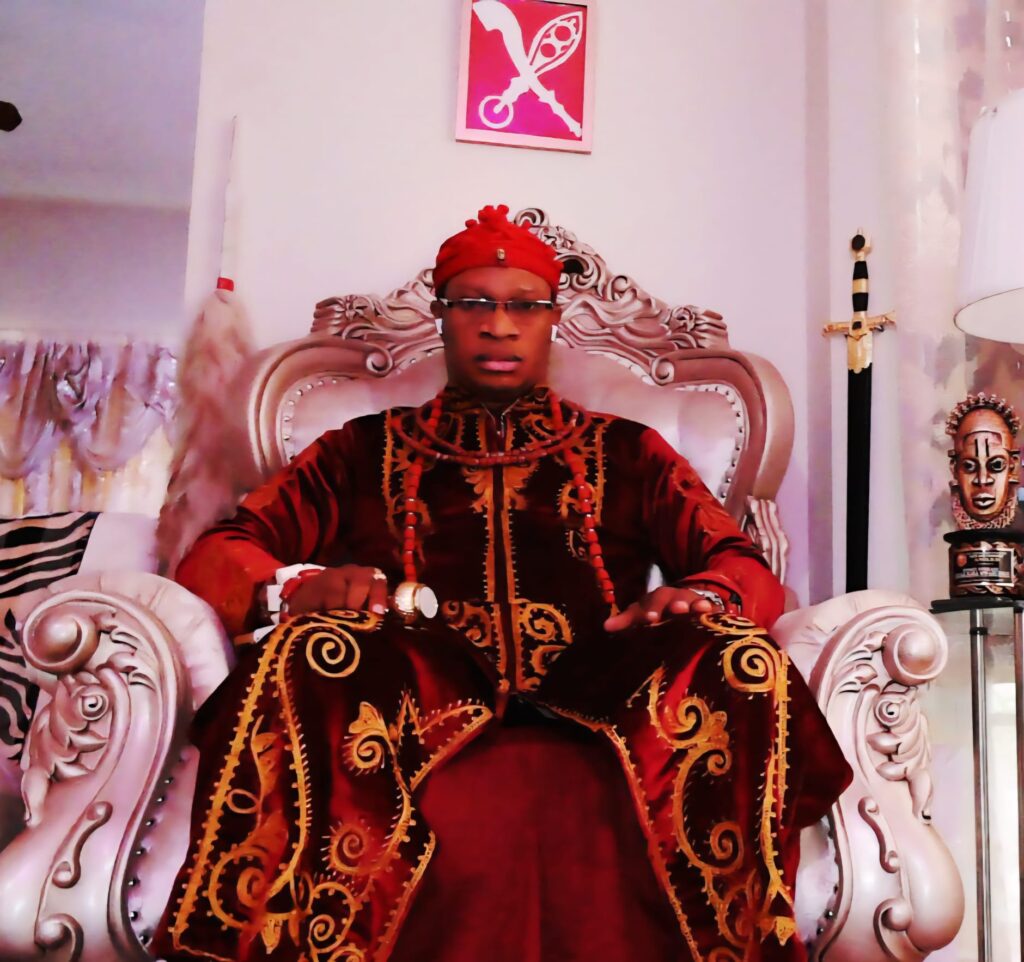The Crown Prince of Onicha Olona in Delta State, His Royal Highness Prince Ephraim Odiakosa Nwabuokei, has traced the historical and ancestral connections linking the Benin, Igala, and Anioma peoples, describing them as communities bound by shared heritage and deep-rooted cultural ties.
Prince Nwabuokei spoke during a meeting with Ambassador Dr. Ayegba Abdullahi Adojoh, the Official Historian of the Igala Kingdom and Ambassador of the Attah Igala.
The discussion focused on the common origins of southern Nigeria’s traditional communities and their intertwined histories.
According to the Crown Prince, archaeological findings in Onicha Olona, including an ancient pot discovered between the late 1970s and early 1980s, confirm that the area had settlements dating back to the Ogiso era of the ancient Idu/Igodomigodo (Benin) Kingdom.
He explained that many of the post-Ogiso era inhabitants of Onicha Olona descended from Oba Ewuare I, The Great, and his warriors, who occupied the region to maintain peace and defend against incursions from both the Igbo and Igala territories.
Prince Nwabuokei further revealed that his royal lineage descends from the second branch of Oba Esigie and Queen Elaba, while the first branch produced the current line of the Oba of Benin.
Highlighting the community’s cultural traditions, the Crown Prince noted that the annual Idu Olu na Igbo Festival, also known as the Idu Olu Festival is held to commemorate the historical conflicts and alliances between Idu (Benin), Olu (Igala), and Igbo peoples.
He also observed that Onitsha (Onicha Ado N’Idu) comprises nine quarters—four of Benin origin, three of Igala, and two of Igbo, reflecting a fusion of ancestries that underline the predominance of Benin and Igala heritage in the area.
Prince Nwabuokei stated that while the Anioma region lies within the territory of ancient Igodomigodo, its communities trace their roots to four ancestral groups: Idu (Benin), Igala, Igbo, and Olukumi (Yoruba).
He, however, maintained that the Benin influence remains the most dominant, despite the colonial-era introduction of English and Igbo languages.
The Crown Prince commended Ambassador Adojoh for his commitment to historical truth and preservation, urging him to continue promoting authentic narratives about Nigeria’s ancient civilizations.
He also prayed for the Oba of Benin, the Attah Igala, Anioma monarchs, and the people of Nigeria, calling for renewed unity, peace, and mutual respect among the country’s diverse ethnic groups.
Prince Nwabuokei reaffirmed the enduring relationship between the Benin and Igala kingdoms, noting that despite historical conflicts, both civilizations have continued to uphold traditions of respect, diplomacy, and cultural exchange.

